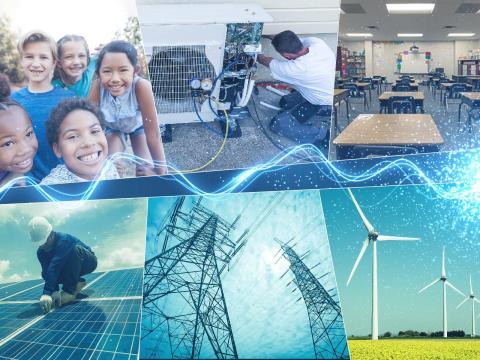Category
Description
As energy prices rise and climate change brings more extreme and frequent days of heating and cooling, households must allocate more of their income to energy bills, increasing their energy burden. Many strategies are employed to alleviate high energy burden, such as weatherization, energy efficiency, and energy storage and rooftop solar, though the benefits of each scale based on factors such as climate, housing characteristics, and energy behaviors. This study used variation in these factors across the United States to create a set of representative houses to investigate the variable responses to different energy burden reduction measures in the simulation environment GridLAB-D. Comparison of modeled energy and bill savings determined weatherization to have the most variability in energy and bill savings, often providing comparable and even greater energy and bill savings to energy storage plus rooftop solar at a fraction of the cost; energy storage provided the most consistent bill savings, determined primarily by the rate tariff used for energy arbitrage; and appliance efficiency upgrades provided minimal energy and bill savings. The results of the analysis can be used by policymakers, utilities, communities, and individuals to tailor energy burden reduction programs, policies, and spending to maximize local benefit.
This dataset associated with A Targeted Approach to Energy Burden Reduction Measures: Comparing the Effects of Energy Storage, Rooftop Solar, Weatherization, and Energy Efficiency Upgrades, can be used to replicate this analysis as well as adapt it to suit individual needs, such as changing the housing characteristics, energy burden reduction measures, rate schedule, or location data. Instructions for use of this dataset can be found in the accompanying readme.txt file.



